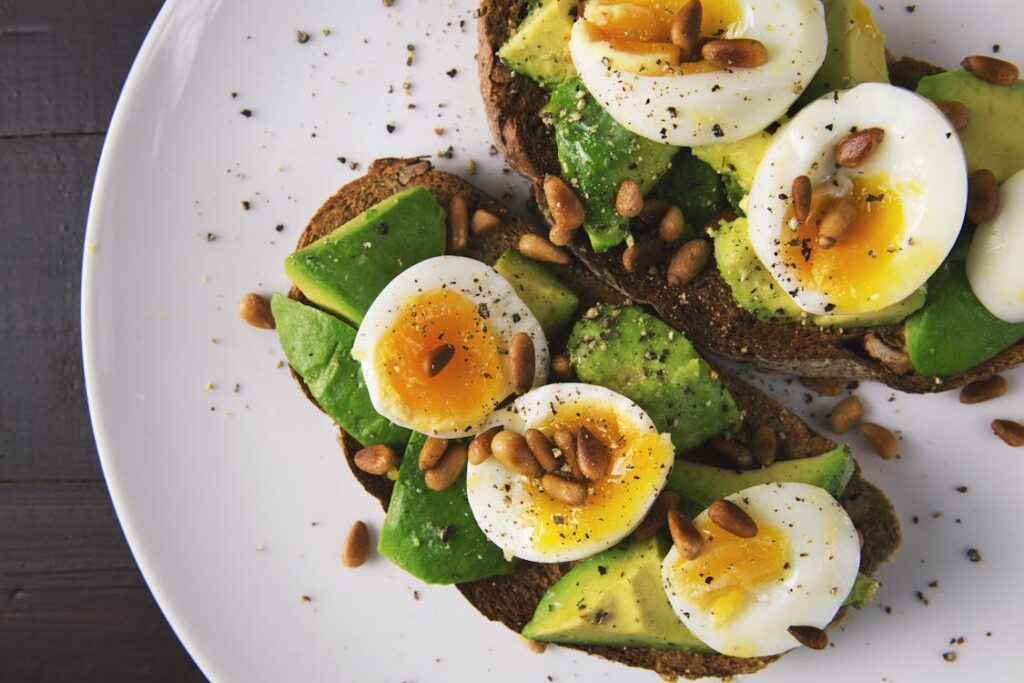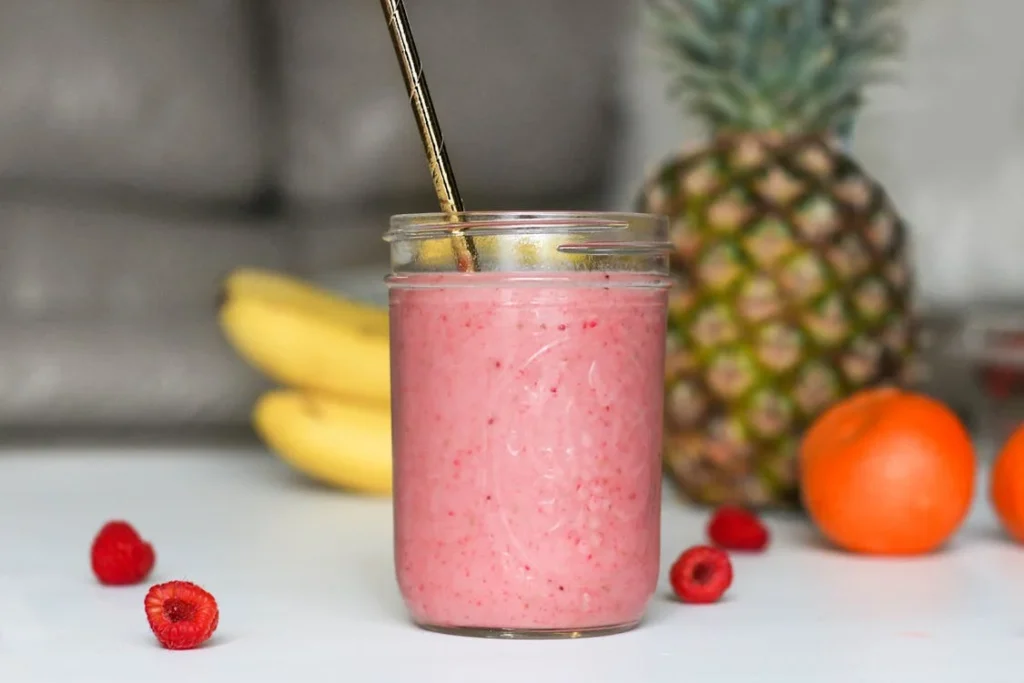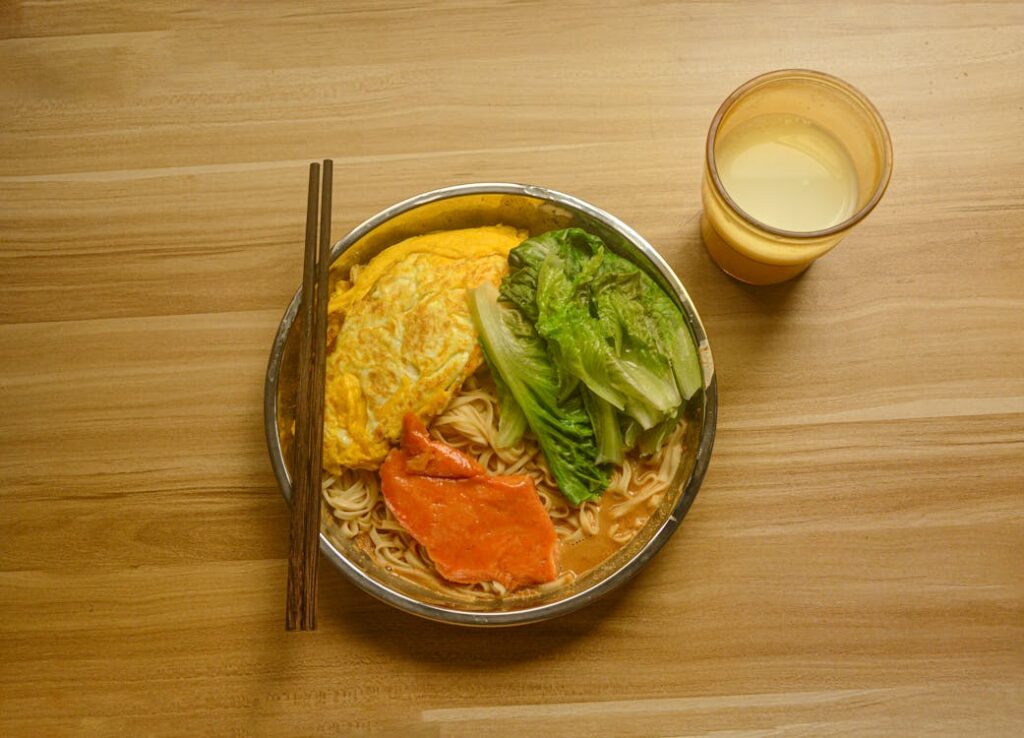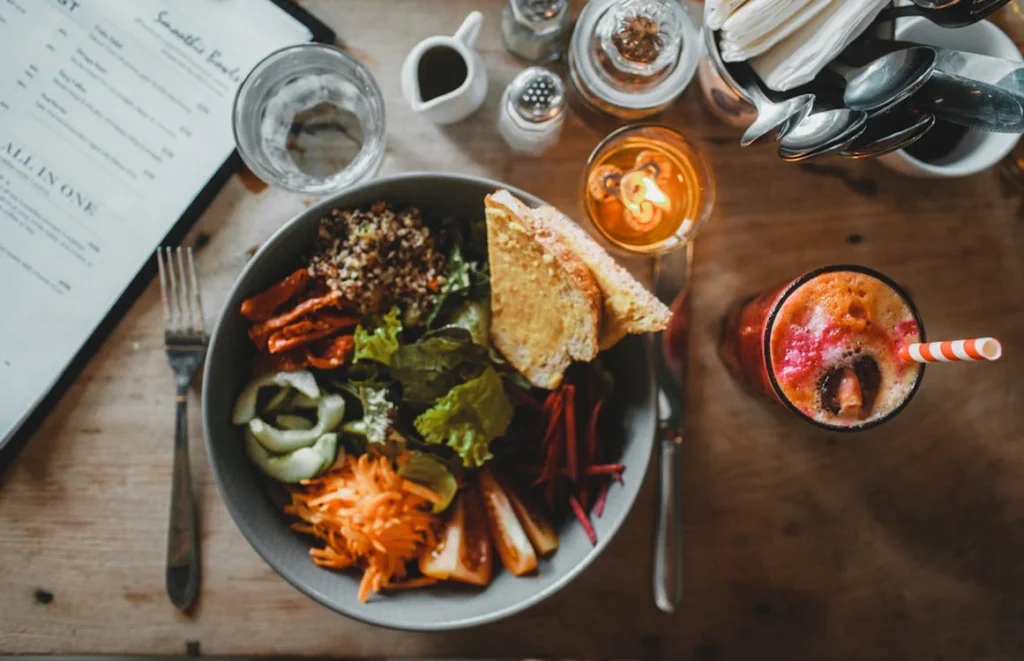Eating well is one of the most powerful ways to improve health, energy, and recovery, especially for amputees. The right foods can help the body heal faster, reduce inflammation, and support muscle strength. While “superfoods” have become a popular trend, not all of them truly offer benefits for amputees. Some foods stand out because they provide essential nutrients that directly impact mobility, circulation, and overall well-being.

Superfoods That Support Healing and Recovery
Healing is a top priority for amputees, especially after surgery or when dealing with skin issues related to prosthetic use. The body needs the right nutrients to repair tissues, prevent infections, and strengthen the immune system.
Certain superfoods contain powerful compounds that speed up the healing process and promote overall recovery.
Turmeric and Its Anti-Inflammatory Power
Turmeric has been used for centuries in traditional medicine, and science now confirms its powerful healing properties. The active compound in turmeric, curcumin, has strong anti-inflammatory effects, which can help amputees manage pain and swelling.
Inflammation in the residual limb can cause discomfort and make prosthetic use challenging. Including turmeric in daily meals can help reduce inflammation naturally.
Curcumin also supports tissue repair, making it beneficial for amputees recovering from surgery or skin irritation caused by prosthetic sockets.
Since curcumin is not easily absorbed by the body, pairing it with black pepper enhances its effectiveness. Drinking turmeric tea or adding it to curries, soups, and smoothies can provide long-term benefits.
Avocados for Skin and Joint Health
Healthy skin is essential for amputees, as the residual limb is often under pressure from prosthetic sockets. Avocados are rich in healthy fats, particularly monounsaturated fats, which nourish the skin and keep it resilient. This reduces the risk of irritation, sores, and infections.
Avocados are also packed with vitamin E, a powerful antioxidant that protects skin cells from damage. For amputees experiencing dryness or sensitivity in their residual limb, adding avocados to their diet can help keep the skin soft and hydrated.
The fruit also contains potassium and magnesium, which help reduce muscle cramps and improve overall mobility.
Bone Broth for Tissue Repair
Bone broth has gained popularity as a superfood due to its high collagen content. Collagen is a key protein that helps rebuild tissues, strengthen skin, and improve joint health.
For amputees, maintaining skin integrity is crucial to prevent irritation from prosthetic wear. Drinking bone broth regularly provides the body with amino acids that support healing and reduce inflammation.
Bone broth is also rich in minerals like calcium and phosphorus, which strengthen bones and support overall skeletal health. Since amputees rely more on their remaining limbs, keeping bones strong is essential to prevent injuries and imbalances.

Superfoods That Boost Energy and Strength
For amputees, daily movement requires more energy than for those without limb loss. Walking with a prosthetic limb, maintaining balance, and staying active demand strength and endurance.
The right foods can help prevent fatigue, keep muscles strong, and support overall physical performance.
Quinoa for Lasting Energy
Quinoa is often called a “super grain,” but it’s actually a seed packed with protein, fiber, and essential amino acids.
Unlike white rice or pasta, quinoa provides slow-releasing energy, helping amputees stay active throughout the day without sudden energy crashes. Its high protein content supports muscle repair, which is crucial for those using a prosthetic limb regularly.
Another benefit of quinoa is its magnesium content, which helps relax muscles and prevent cramps. For amputees, muscle tension can build up due to imbalanced weight distribution, making magnesium-rich foods like quinoa highly beneficial.
Adding quinoa to salads, soups, or as a side dish can provide sustained energy and muscle support.
Chia Seeds for Muscle Endurance
Chia seeds have gained popularity for their high omega-3, fiber, and protein content. These tiny seeds absorb water and expand, helping the body stay hydrated and energized for longer periods.
Proper hydration is essential for amputees, as dehydration can lead to muscle stiffness and discomfort when using a prosthetic limb.
Chia seeds also contain antioxidants that help reduce inflammation and speed up muscle recovery after physical activity.
Whether blended into smoothies, mixed into yogurt, or sprinkled over oatmeal, chia seeds provide a simple way to enhance endurance and support overall strength.
Bananas for Muscle Recovery
Bananas are a great natural source of potassium, an important mineral that helps regulate muscle contractions and prevent cramps. For amputees who engage in physical therapy or regular walking, potassium-rich foods like bananas can reduce soreness and improve mobility.
Bananas also contain carbohydrates that provide quick energy without causing a sugar crash. They make an excellent pre-workout snack or an easy addition to breakfast to fuel the body for the day ahead.
Since they are easy to digest, bananas are a great option for those who need a nutrient boost without feeling too full.

Superfoods That Improve Circulation and Reduce Inflammation
Good circulation is essential for amputees, as it helps deliver oxygen and nutrients to muscles, tissues, and the residual limb. Poor blood flow can lead to swelling, numbness, and slower healing, all of which make wearing a prosthetic limb uncomfortable.
Inflammation, on the other hand, can cause joint stiffness, muscle soreness, and chronic pain, making mobility more difficult. Certain superfoods can help improve circulation and keep inflammation under control, allowing amputees to stay active and comfortable.
Beetroot for Better Blood Flow
Beetroot is one of the best foods for improving circulation. It contains nitrates, which help expand blood vessels and allow oxygen-rich blood to flow more easily throughout the body.
For amputees, better circulation means reduced swelling in the residual limb and improved muscle function. This is especially important for those who experience discomfort due to poor blood flow in their lower limbs.
Another benefit of beetroot is its ability to boost stamina. Studies show that drinking beetroot juice before physical activity can enhance endurance by increasing oxygen supply to the muscles.
For amputees using a prosthetic limb, this means less fatigue and better mobility throughout the day. Adding beetroot to salads, blending it into smoothies, or drinking fresh beet juice can naturally improve circulation and energy levels.
Dark Chocolate for Heart Health
Dark chocolate, specifically varieties with high cocoa content (70% or more), is packed with flavonoids—powerful antioxidants that promote heart health and improve circulation.
These flavonoids help keep blood vessels flexible, reducing the risk of high blood pressure and promoting better oxygen flow to the limbs.
For amputees, good circulation is key to preventing skin irritation, pressure sores, and discomfort in the residual limb. The anti-inflammatory properties of dark chocolate also help reduce swelling and stiffness in joints, making movement easier.
Eating a small amount of dark chocolate as an occasional treat can provide these benefits without excessive sugar intake.
Ginger for Natural Pain Relief
Ginger has been used for centuries as a natural remedy for pain and inflammation. It contains compounds called gingerols, which help reduce swelling and muscle stiffness.
For amputees, this can be especially helpful in relieving discomfort in the residual limb, easing joint pain, and making prosthetic use more comfortable.
Ginger also improves digestion and circulation, ensuring that essential nutrients reach the muscles and tissues that need them. Drinking ginger tea, adding fresh ginger to meals, or using it in smoothies can provide ongoing benefits for inflammation and pain management.
Leafy Greens for Oxygen Supply
Dark leafy greens like spinach, kale, and Swiss chard are packed with iron, which helps red blood cells carry oxygen throughout the body.
Amputees need proper oxygen supply to maintain energy levels, heal wounds, and keep muscles strong. Low iron levels can lead to fatigue and poor circulation, making mobility more challenging.
Leafy greens are also rich in vitamin K, which supports blood clotting and prevents excessive bleeding. This is especially important for amputees, as minor cuts or abrasions in the residual limb need to heal quickly to prevent infection.
Including greens in daily meals, whether in salads, soups, or smoothies, can significantly improve circulation and overall health.
Fatty Fish for Joint and Nerve Health
Salmon, mackerel, and sardines are rich in omega-3 fatty acids, which help reduce inflammation and improve nerve function. For amputees, omega-3s can ease joint pain, support healthy nerve connections, and prevent stiffness that makes prosthetic use uncomfortable.
These fatty acids also keep blood vessels clear, improving circulation and reducing the risk of heart disease. Since amputees often place extra strain on their remaining limbs, maintaining heart health is crucial for long-term mobility.
Eating fatty fish at least twice a week provides these essential benefits, keeping joints flexible and circulation strong.

Superfoods That Enhance Mental Well-Being and Mood
Physical health is only one part of the equation for amputees—mental well-being is just as important. Adjusting to limb loss, managing pain, and maintaining independence can sometimes lead to stress, anxiety, or even depression.
The foods we eat play a major role in brain function, mood stability, and overall mental health. Certain superfoods contain nutrients that help improve focus, reduce stress, and support emotional well-being, making daily life more manageable and fulfilling.
Blueberries for Brain Health and Stress Reduction
Blueberries are often considered a superfood for the brain. They are packed with antioxidants called flavonoids, which help protect brain cells from damage and improve cognitive function.
For amputees, maintaining mental clarity and focus is crucial, especially when adjusting to a prosthetic limb or undergoing rehabilitation.
Blueberries also help regulate stress hormones. High levels of stress can lead to inflammation and tension in the body, making it harder to move comfortably with a prosthetic.
Eating blueberries regularly can support the nervous system and promote a sense of calm. Adding them to smoothies, yogurt, or oatmeal is an easy way to enjoy their benefits.
Walnuts for Memory and Mood Balance
Walnuts are one of the best plant-based sources of omega-3 fatty acids, which are essential for brain health. These healthy fats help improve memory, boost concentration, and reduce symptoms of anxiety and depression. Since mental resilience plays a big role in adapting to life as an amputee, foods that support emotional balance can make a significant difference.
Walnuts also contain magnesium, which helps relax the nervous system and improve sleep quality. Poor sleep can increase feelings of stress and fatigue, making it harder to stay active and engaged in daily activities.
Eating a handful of walnuts as a snack or mixing them into meals can help support both mental and physical well-being.
Dark Chocolate for Mood Enhancement
Beyond its benefits for circulation, dark chocolate is also known for its ability to improve mood. It stimulates the release of serotonin, the “feel-good” hormone that promotes a sense of happiness and relaxation.
For amputees dealing with stress or frustration, a small piece of dark chocolate can offer a natural mood boost.
Dark chocolate also contains magnesium and antioxidants, which help reduce stress-related inflammation in the brain. Choosing varieties with at least 70% cocoa ensures maximum benefits without excessive sugar intake.
Green Tea for Calmness and Focus
Green tea contains L-theanine, an amino acid that promotes relaxation without causing drowsiness. It helps reduce anxiety while improving focus, making it a great alternative to coffee for amputees who want steady energy without jitters.
Green tea is also packed with antioxidants that help reduce inflammation in the brain and body. Since inflammation can contribute to chronic pain and discomfort, drinking green tea regularly can help amputees feel more at ease.
Fermented Foods for Gut and Brain Connection
The gut and brain are closely linked, meaning that digestive health plays a big role in mood regulation. Fermented foods like yogurt, kefir, and kimchi contain probiotics, which support gut health and improve the production of mood-regulating neurotransmitters.
For amputees, maintaining gut health is essential for energy levels, immune function, and emotional stability. A diet that includes fermented foods can help reduce stress and improve overall well-being.

Superfoods That Strengthen the Immune System
For amputees, maintaining a strong immune system is essential for preventing infections, promoting faster healing, and staying active without frequent illnesses.
The immune system plays a direct role in wound recovery, skin health, and energy levels, all of which affect daily comfort and mobility.
Including immune-boosting superfoods in the diet can help amputees stay resilient and recover more quickly from minor injuries or seasonal illnesses.
Citrus Fruits for Vitamin C and Wound Healing
Oranges, lemons, limes, and grapefruits are well-known for their high vitamin C content, which is essential for a strong immune system.
Vitamin C helps the body produce collagen, a key protein in skin repair and wound healing. For amputees, especially those who wear prosthetics, maintaining healthy skin on the residual limb is critical to prevent sores and infections.
Citrus fruits also contain antioxidants that protect the body from harmful free radicals, reducing inflammation and keeping the immune system strong.
Drinking fresh lemon water, eating oranges as snacks, or adding citrus zest to meals can help ensure a steady intake of vitamin C.
Garlic for Natural Infection Protection
Garlic has been used for centuries as a natural remedy for infections and immune support. It contains allicin, a compound with strong antibacterial and antiviral properties that help the body fight off illness.
For amputees, keeping the immune system in top shape means fewer risks of infections, especially in the residual limb.
Garlic also supports heart health by improving circulation and reducing inflammation. Since proper blood flow is essential for healing and mobility, adding garlic to meals can provide multiple benefits.
Crushing or chopping garlic before cooking helps activate its immune-boosting properties.
Mushrooms for Immune-Boosting Nutrients
Certain types of mushrooms, such as shiitake, maitake, and reishi, contain powerful compounds that enhance immune function. They help increase the production of white blood cells, which are essential for fighting infections and promoting faster recovery from wounds.
Mushrooms are also rich in B vitamins, which support energy production and reduce fatigue. For amputees who experience low energy levels or frequent infections, adding mushrooms to soups, stir-fries, or omelets can provide a natural immune boost.
Almonds for Vitamin E and Skin Protection
Vitamin E is a powerful antioxidant that strengthens the immune system and helps protect skin from damage. Almonds are one of the best sources of vitamin E, making them a great choice for amputees who want to maintain healthy skin on their residual limb.
Since prosthetic use can sometimes cause irritation or pressure sores, eating foods rich in vitamin E can support skin repair and resilience.
Almonds also contain healthy fats and protein, which help maintain steady energy levels throughout the day. Eating a handful of almonds as a snack or adding almond butter to smoothies can provide both immune and skin benefits.
Yogurt for Gut Health and Immunity
A large part of the immune system is connected to gut health. Yogurt contains probiotics, which are beneficial bacteria that support digestion and strengthen the body’s ability to fight infections.
For amputees, maintaining a healthy gut can improve nutrient absorption, leading to better overall health and faster healing.
Choosing plain, unsweetened yogurt with live cultures ensures maximum probiotic benefits. Adding fresh fruit or a drizzle of honey can enhance the taste while keeping it nutritious.
Regularly consuming probiotic-rich foods like yogurt, kefir, or sauerkraut can help maintain a strong immune system and overall well-being.

Incorporating Superfoods into Daily Meals
Knowing which superfoods benefit amputees is important, but the real challenge lies in making them a consistent part of everyday meals. A healthy diet doesn’t have to be complicated or restrictive.
Small, sustainable changes can make a big difference in energy levels, healing, and overall well-being.
Starting the Day with a Nutrient-Rich Breakfast
A well-balanced breakfast sets the tone for the rest of the day. Instead of relying on processed cereals or sugary pastries, choosing whole foods packed with protein, fiber, and healthy fats can provide lasting energy.
A simple option is a smoothie made with yogurt, blueberries, chia seeds, and a handful of almonds. This combination supports digestion, brain function, and muscle strength, making it an excellent way to fuel the body for the day ahead.
Adding turmeric or ginger to a morning tea can also help reduce inflammation and improve circulation.
For those who prefer a hearty meal, scrambled eggs with spinach and avocado on whole-grain toast can provide essential vitamins and minerals.
This type of breakfast supplies protein, healthy fats, and iron, all of which are important for amputees who need strong muscles and steady energy.
Nutritious Lunches for Sustained Energy
Lunch should provide a balanced mix of protein, healthy fats, and fiber to keep energy levels steady throughout the day. A quinoa and beetroot salad with grilled salmon can be a great option.
Quinoa provides plant-based protein, beetroot improves circulation, and salmon supplies omega-3 fatty acids to reduce inflammation.
Another excellent lunch idea is a lentil soup with garlic and leafy greens. Lentils are packed with protein and iron, garlic supports the immune system, and greens provide essential vitamins for bone and skin health.
A side of whole-grain bread can add extra fiber and help with digestion.
Dinners That Support Healing and Recovery
Dinner is an opportunity to refuel the body and support overnight healing. A simple yet powerful meal could include roasted vegetables with turmeric-seasoned chicken or tofu. Turmeric helps with inflammation, while the protein supports muscle repair and tissue growth.
A bone broth-based soup with mushrooms, garlic, and leafy greens can provide essential nutrients for skin health and immune support. The collagen in bone broth promotes faster healing, and mushrooms boost white blood cell production to fight infections.
Healthy Snacks for Energy and Nutrient Boosts
Snacking can be an easy way to include superfoods in the diet without much effort. Instead of reaching for processed chips or sugary treats, choosing nutrient-dense snacks can keep the body fueled.
A small handful of walnuts and dark chocolate can help improve mood and brain function. Yogurt with honey and almonds provides probiotics for gut health and protein for muscle support.
Chia seed pudding made with almond milk and cinnamon is a simple, anti-inflammatory option that keeps energy levels stable.
Staying Consistent with Superfood Choices
The key to long-term success is consistency. Superfoods should become a natural part of the diet rather than a short-term change. Rotating different superfoods throughout the week can prevent boredom while ensuring a broad range of nutrients.
Batch-preparing meals, keeping a stocked pantry with healthy options, and making small swaps—like replacing white rice with quinoa or drinking green tea instead of sugary beverages—can make a big difference in overall health.
Over time, these habits will lead to better mobility, improved strength, and enhanced well-being.
Conclusion
Superfoods are more than just a health trend—they offer real, science-backed benefits that can improve the lives of amputees. From supporting healing and reducing inflammation to boosting energy, circulation, and mental well-being, the right foods play a crucial role in overall health and mobility.
Incorporating these superfoods into daily meals doesn’t have to be complicated. Small, consistent changes, such as adding turmeric to meals, swapping refined grains for quinoa, or enjoying a handful of nuts and dark chocolate, can make a significant difference. By focusing on nutrient-rich foods, amputees can experience better energy levels, faster recovery, and improved prosthetic comfort.
At Robobionics, we believe that good health goes hand in hand with mobility. A well-fitted prosthetic limb combined with a strong, nourished body leads to a better quality of life. If you’re looking for expert guidance on prosthetic care or want to explore innovative rehabilitation options, reach out to us today. Your journey to better mobility and health starts with the right choices—both in your prosthetic care and in your nutrition.



